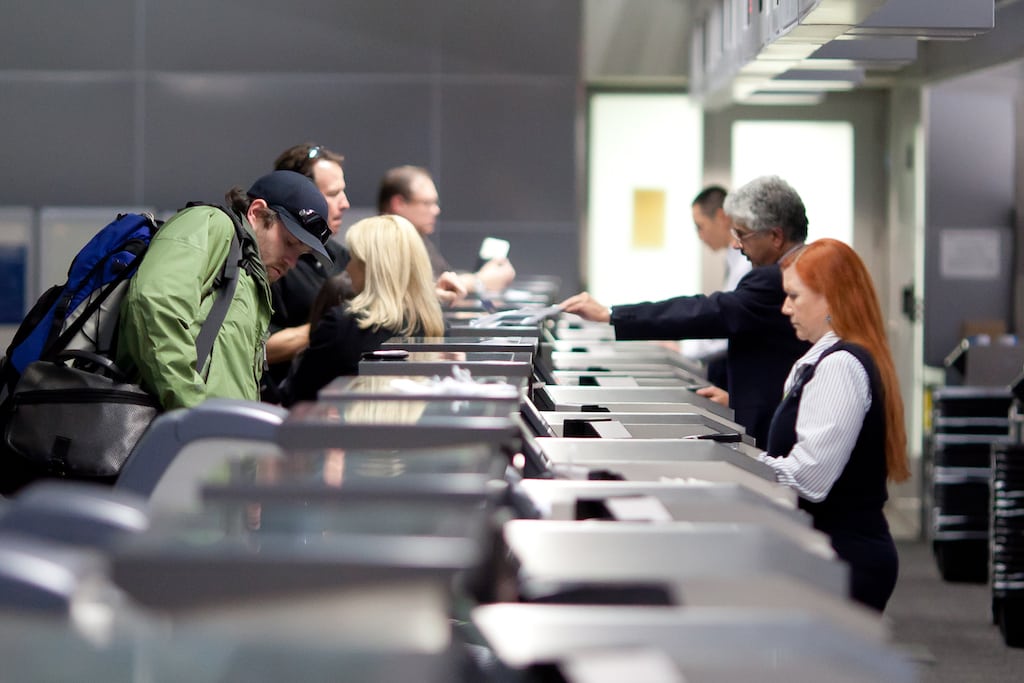Skift Take
As business travel grows slowly in the U.S., travel management companies with more robust digital tools will be able to capture more bookings.
A new research report and the latest update to the U.S. Travel Association’s Leading Travel Index show that corporate and managed travel in the U.S. is in what amounts to a slump.
Phocuswright’s recent “U.S. Corporate Travel: Market Sizing and Trends report” shows what most have already suspected: While increasing in size, the corporate travel market is growing at a slower pace than the leisure market.
“We did see a nice recovery in the market, but we dont see it coming back as fast as leisure,” said Lorraine Sileo, Phocuswright’s senior vice president of research. “Companies are being a little more conservative in their spending.”
A look at Phocuswright’s projections for 2017 shows that gross bookings are on the rise, but the rate of growth is slow. According to these calculations, gross bookings for U.S. managed travel will increase from $110 billion in 2014 to an estimated $120 billion in 2017, a 9 percent rise over the four-year period.
The study also examined the mobile habits of business travelers, finding that a mobile revolution in corporate travel has yet to materialize.
More than half of managed business travelers searched for air tickets on a smartphone, but less than 20 percent booked on a smartphone. About half searched for hotel rooms, while about a third has booked a hotel room on mobile.
According to Sileo, travel management companies haven’t been providing robust enough mobile tools to corporate travelers.
“We found on the corporate side that mobile was bigger on the expense side, or just being able to communicate with the traveler; it wasn’t really utilized to a big degree,” said Sileo. “Travel management companies that want to become this end-to-end solution need to be able to provide services and integrate more tools that do itinerary management and location-based services. We didnt see that much innovation at that point, when price tracking tools like TripBAM and peer-to-peer services can really change the marketplace.”
Open booking remains limited, Sileo claimed, but sharing economy services will likely help push through more thorough integration.
“On the hotel side, there was less integration of Airbnb because there was a little concern about access to the property, Wi-Fi and data security,” said Sileo. “We did see an uptick in intermediaries versus [direct bookings]. And finally now the intermediaries have access to ancillaries, you no longer have to go direct to get the extra legroom, now you can get that through the global distribution systems with a travel management company.”
On a broader level, U.S. Travel has found that domestic U.S. business travel will continue to decline for the next six months. Its Leading Travel Index has shown business travel slowing down every month since November 2015.
“Even though domestic business travel declined and flagging advance airline bookings from abroad brought the Leading Travel Index down slightly, these number should be measured against the healthy growth seen in previous months,” said David Huether, U.S. Travel’s senior vice president for research.
The Daily Newsletter
Our daily coverage of the global travel industry. Written by editors and analysts from across Skift’s brands.
Have a confidential tip for Skift? Get in touch
Tags: business travel, corporate travel, ctir, managed travel
Photo credit: Travelers checking in at San Francisco International Airport. Thomas Hawk / Flickr
